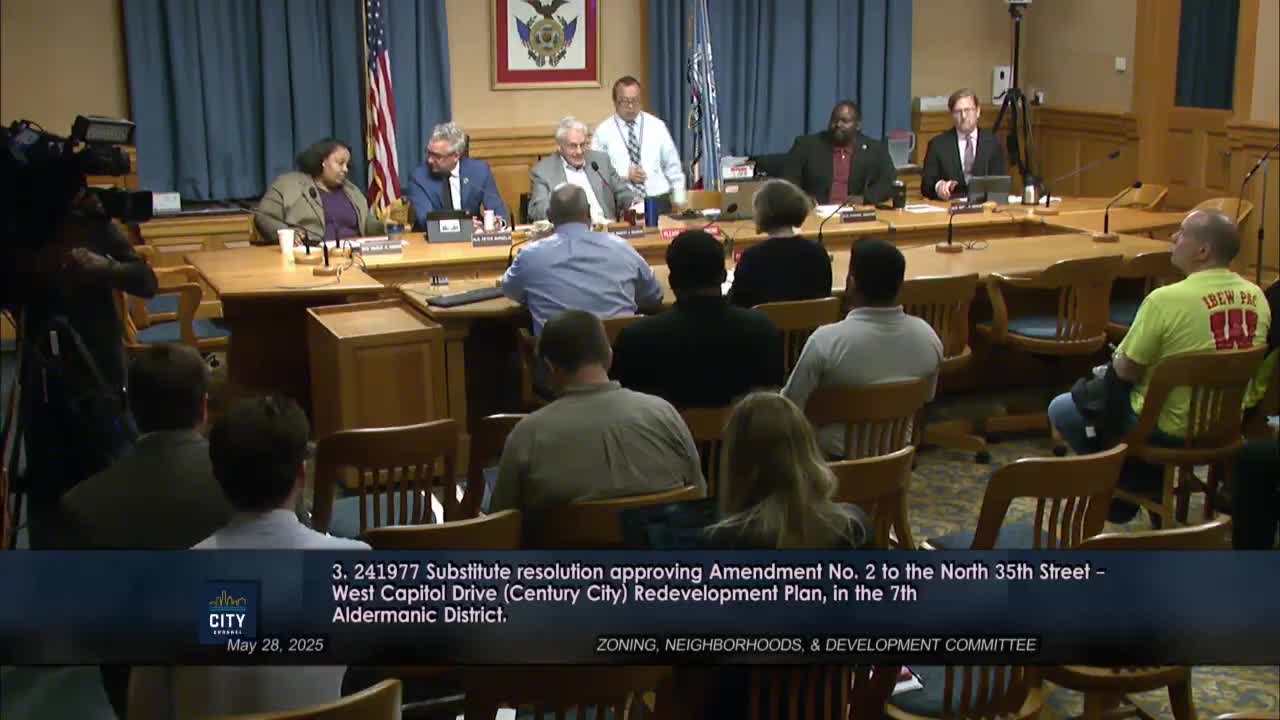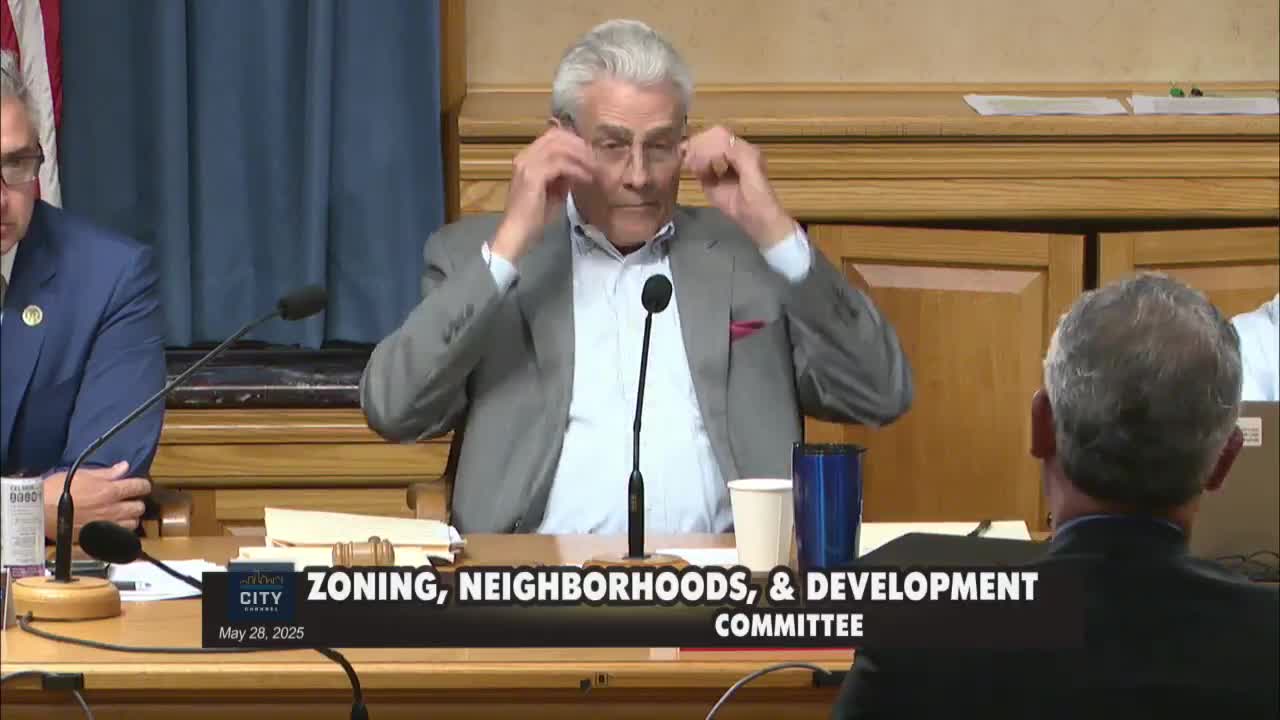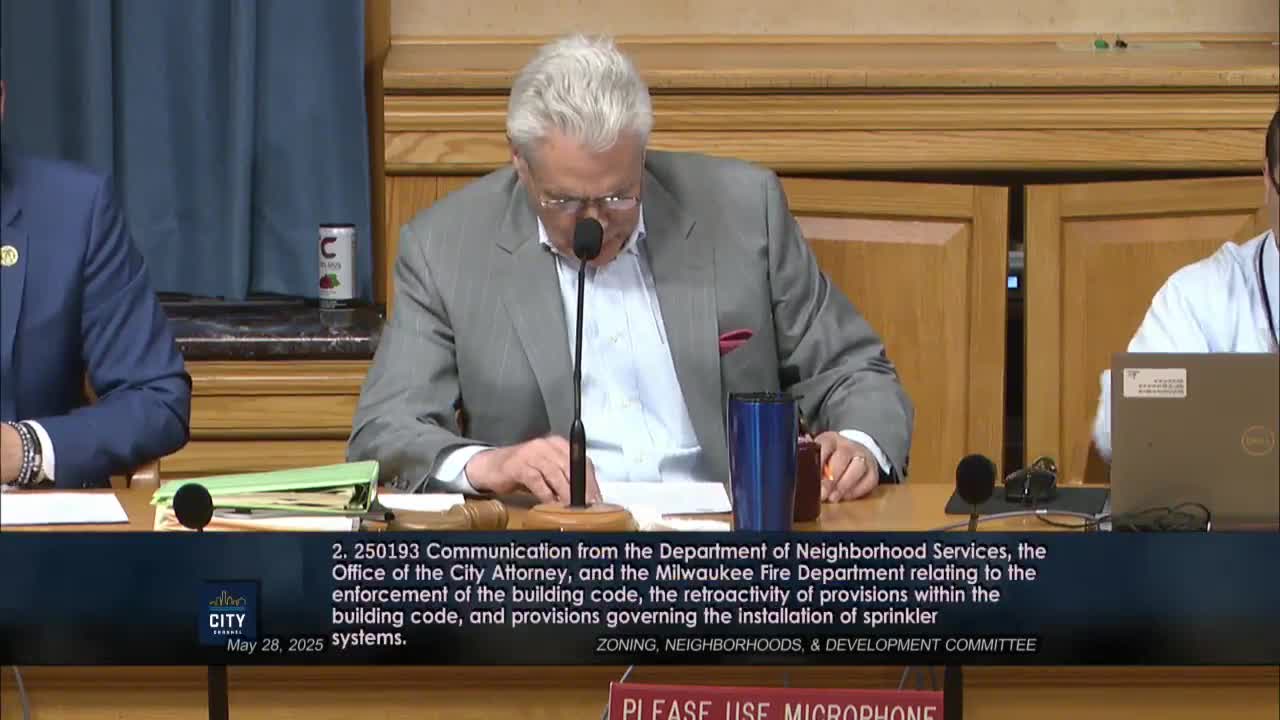Article not found
This article is no longer available. But don't worry—we've gathered other articles that discuss the same topic.

Committee approves small land-use items: Century City extension, fund transfer and temporary community garden; one reappointment held

Committee recommends approval of Moxie hotel plan for Deer District block after vigorous public debate

